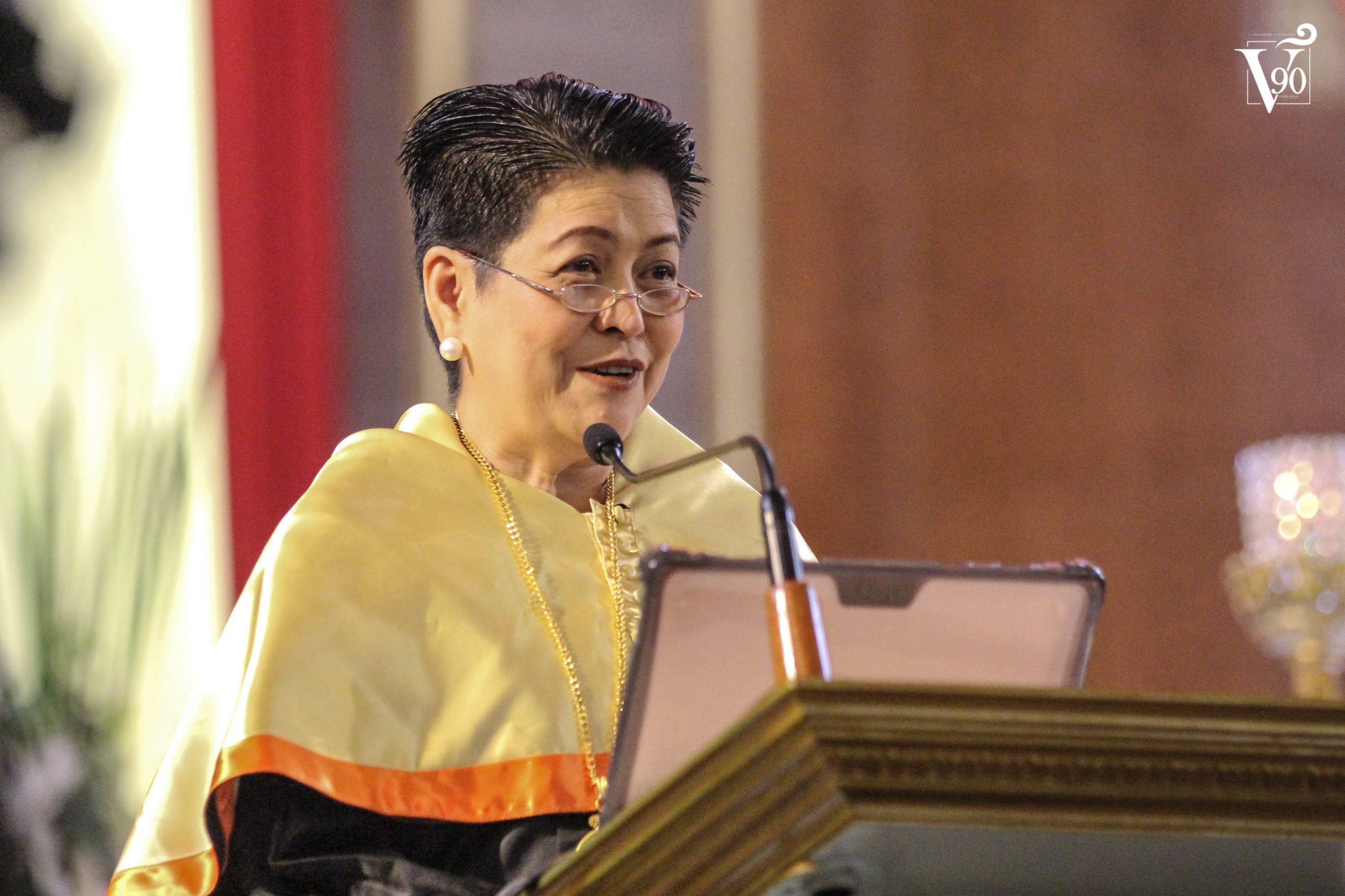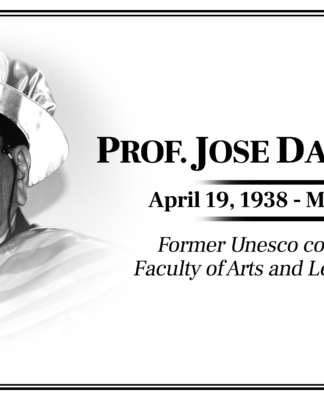VICE-PRESIDENT Teofisto Guingona called for a parliamentary form of government, saying this would be more beneficial to the country.
In a symposium organized by the Political Science Forum last Sept. 20 and 21 at the Thomas Aquinas Research Complex, Guingona cited a swifter legislation system, faster release of public funds, and better entrepreneurship as the most evident benefits of the parliamentary system.
Guingona explained that even if the parliamentary system has yet to be tried, the system shows promise.
“Well it is obvious that the presidential system is not working, it has flaws and so we are proposing a change to the parliamentary system but that has never been tried,” he explained.
Former Senator Francisco Tatad agreed.
According to Tatad, a former Varsitarian literary editor, the citizens in a parliamentary system do not directly elect the head of the government called prime minister. Instead, every district elects a representative as a member of the parliament, who will then select the prime minister, who forms his cabinet among the members of the parliament.
“No one will have to spend P4 to 8 billion (for campaign) to land a P600,000-a-year term”, he added.
Tatad added that the parliamentary system offers an easier, smoother, and quicker way of choosing and changing leaders.
“It will not give any known minority the power to substitute its weight and judgement for the will of the entire nation,” he said.
In addition, Tatad said that the presidential system is more prone to corruption than the parliamentary. It encourages emergence to power of non-principled and non-intellectual leaders.
“The basis of impression is by deceitful propaganda. So the wife-beater is the champion of the law, and the adulteress is celebrated as the goddess of the environment,” Tatad added.
On the other hand, Senator Aquilino Pimentel proposed a shift from the unitary system to the federal system. Pimentel cited faster economic growth for the country and lasting peace in the country as primary reasons for the shift.
“If we allot resources in the country, divide them equally (in order that) progress would spread and not just be concentrated in Manila,” Pimentel explained
According to Pimentel, such a move would prevent people from flocking to the nation’s capital.
“If progress and jobs reached the countryside, people would no longer flock to Manila. They still think Manila is the city of their dreams that is why it is so crowded, and dirty, and unorganized (here). The federal system could do something about this,” Pimentel said.
The presidential system, the county’s present form of government, entails having the people directly vote the head of the state.
Meanwhile, Political Science coordinator lawyer Reynaldo Lopez said a change was needed because the presidential system was not working.
However, Secretary-General Fr. Winston Cabading, O. P. said any form of government would not work if the same corrupt official would be in power.
“As long as corrupt officials run the government, the country will not prosper,” Cabading said.
Other speakers included Froilan Bacungan, dean of the Philippine Social Science Center of UP-Diliman, who also talked about absentee voting, and Rep. Loreta Ann Rosales, UST Political Science professor Reynald Trillana, and lawyer Jose Luis Gascon, who talked about government funding of political parties. Jennifer B. Fortuno and Elka Krystle R. Requinta
















